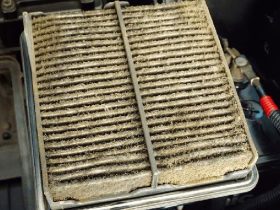Keeping your car running smoothly is and in its best condition for the roads, you need to constantly keep up with routine maintenance, inspections and road tests. If you can properly maintain a high standard of care, you’ll avoid future repair and or upgrading costs. You can better optimize the performance which will ultimately keep the longevity of the car’s life high as well as maintain the value.
The benefits of upkeep
Sometimes, vehicle owners just don’t have the incentive to maintain their car; because it’s a tool they use, purely, to get from A to B. Staving off depreciation can have many financial benefits. If your vehicle is well maintained and kept in a highly robust and efficient manner, it can be used as an economic bargaining chip for an instant cash injection. No inspection online title loans, reward owners who have kept their vehicle in tip-top shape, should they need an avenue of financial assistance at some point in their life. It goes without saying, that catching problems that may occur, before they actually occur is going to keep you from dipping into your bank account to fix a costly issue. The decent value will also be retained, should you decide to sell your car in the future.
Braking system
Drums brakes are a thing of the past for the front wheels for most modern cars but they’re used for the rear. As the majority of braking is done by the front tyres, most cars now use disc brakes for the front wheels. Brakes rely on friction to slow the car down. To do this, a disc will use a caliper fitted to the brake pad and grab the spinning rotor. A drum brake is used mainly for parking, as a handbrake utilizes a drum and shoe mechanism.
When the pedal becomes spongy or light, you can be sure there’s an issue with the hydraulic pressure. A red brake warning light may come on in the dashboard to notify you of this. If the brakes continuously squeal under braking, or an irregular grinding noise can be heard, your brake pads are nearing the end of its usable life. An owner’s manual will depict in a diagram how your brakes work and what kind they are. You can buy new pads and other necessities to do with a healthy braking system at cat part stores or hardware shops. However, for safety reasons, if you’re unsure what the problem is with your brakes, always go and see a garage. A potential catastrophic brake failure could be severely dangerous to your and someone else’s health.
The engine oil
The lifeblood of an engine is the oil. Often overlooked and left to become old, thick and dirty, for most cars, checking the oil after 2000 or 3000 miles is something the driver should become accustomed to. If you’re driving in dusty conditions, if you’re sitting in traffic for a lot of the time and mainly going from a stop to a start in a cyclic manner, this will put extra strain on the engine, air intake and oil cooling system. Short trips will keep the oil, from heating up and lubricating the engine properly, this most dirt particles and engine toxins will enter into the oil and make it dirty. To prevent a pileup of issues, change the oil moderately, and change the oil filter, air filter and fuel filter.
Interior
Consider the interior as well. Keeping it clean and tidy is a great first step. Adding car seat experts protectors or other items to stave off wear and tear is another good idea. Air fresheners and driving with the windows down on occasion to “air out” the car and keep it fresh are also smart.






